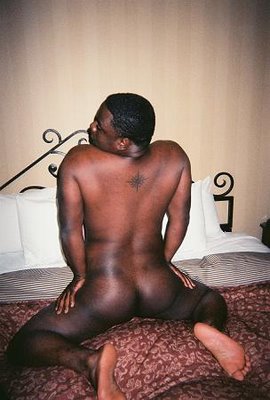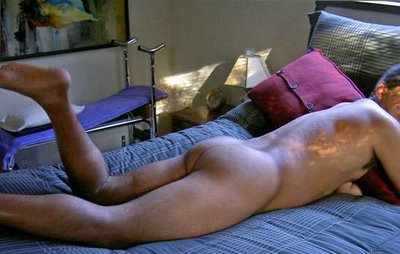 ATLANTA, GEORGIA - It has long been the editorial policy of Atlanta Progressive News to use the word “homosexual” to describe persons who have a same-sex sexual orientation.
ATLANTA, GEORGIA - It has long been the editorial policy of Atlanta Progressive News to use the word “homosexual” to describe persons who have a same-sex sexual orientation.Our policy differs from that of many news organizations which tend to prefer the word “gay” instead of “homosexual.”
I want our readers to know that as a News Editor, I have put a lot of thought into this and many other word choices at Atlanta Progressive News.
After receiving two emails from concerned readers, I have revisited and explored the issue again, and have come to the same conclusion: it would be irresponsible of APN as a news agency to use the words “gay,” “straight,” or “lesbian” as if any of these were unproblematic.
What is in a word?
Language isn’t perfect, of course, because it is socially constructed. So we can’t focus on language and unlock the mysteries of the universe.
But, we can look to language to uncover some very fascinating issues about ourselves. And I think it’s important we think about the significance of the language choices we use, and what ideas they may perpetuate.
Some people have objected to the use of “homosexual” because it calls attention to sexual orientation.
Well, any time you’re using an adjective to describe someone’s sexual orientation, I’m sorry, but you’re calling attention to their sexual orientation. Using the word “gay” doesn’t make it any different.
We might want to discuss, where does it get us as a society to even categorize people into sexual orientations? Maybe it’s nobody’s business what another person’s sexual orientation is. But that’s not something that will be settled any time soon.
In the meantime, as long as people feel the need to use an adjective describing a person’s sexual orientation, then we should try, I believe, to use the most accurate word possible.
There is no word, in my view, which more accurately describes same-sex sexual orientation than the word homosexual.
Now, there are a number of reasons some people have been enthusiastic about the word “gay.” And I want to talk about these reasons.
Most of the reasons I’ve gotten, I must say, have not been very compelling. The word “homosexual” is antiquated; no one uses it anymore, I’ve been told. Well, I’d prefer to be principled than to follow trends.
But a few substantive reasons have been put forth.
First, the word “gay,” I’ve been told, is preferred because it doesn’t call as much attention to sexuality as does the word “homosexual.”
Well, I think that’s exactly the problem!
I think the propagation of the word “gay” is an effort to appease the Religious Right in this country.
It’s almost like, don’t worry, we’re not homosexual, we’re just gay. See? And that’s not as bad now, is it? We’re just happy and festive [the original meaning of “gay”] and we’re good, wholesome people, and have a wonderful community, and oh, by the way, we also have same sex sexual orientation but that’s really neither here not there.
It makes me feel like people are still so ashamed of their sexual orientation that they don’t want to admit it.
Moreover, I don’t think using the word “gay” instead of “homosexual” advances the cause of equality.
In fact, I think it makes it worse by insidiously allowing the Religious Right to define the word “homosexual” word as such a taboo, to the point where some of us would be offended by its very usage!
I think we should embrace the word homosexual, and we should be working diligently to turn it into a wonderful, positive word... instead of surrendering its meaning to our enemies.
One Atlanta blogger, Chris Vise, gave another argument, and told us:“Sure being gay is having a sexual attraction to a person of the same gender [sic; should have said “sex,” not gender] but that isn't all there is to being gay.”
 Really? What else is there?
Really? What else is there?Let’s be clear. I’m not saying homosexual people are wholly “defined” as people by their sexuality, than 23 year-old people are defined by their age, or blue eyed people are defined by their eye color.
But, when you’re using an adjective to describe a demographic characteristic about a person, then yes, you are calling attention to whatever trait it is.
If homosexual people don’t like being called “homosexual” because it brings attention to their sexuality, then using the word “gay” shouldn’t help the situation, really, since it’s supposedly doing the same thing.
Chris Vise’s claim I think gets to the crux of the matter.
Is there really more to being “gay” than being homosexual?
Here is where I think we hit a loaded question.
Because I don’t think there is.
I mean, maybe a lot of homosexual people, say, in Atlanta, read Southern Voice Magazine every week, and go to Gay Pride, and buy their books at Charis and Outwrite.
The key word in that sentence is “a lot.” “A lot” is not the same as “all.”
To assume there is a cluster of cultural activities and attributes that accompany every homosexual person is, I believe, unfair.
The only thing all homosexual people have in common is their homosexuality.
Now, what about “the gay community?”
There are some really interesting questions here: Is there a gay community? Who is a member of the gay community? Who gets to decide the boundaries of the gay community? Who is the gatekeeper? Who gets to decide what the community should be called?
And, clearly, there is evidence of a “gay community” in that there are a lot of homosexual people and prominent organizations who participate in the “gay community,” and prefer the word “gay.” And the fact that it’s real to them is enough to make it real for our discussion.
However, who gets to decide whether “gay” is the right name for a community which purports to include all homosexuals?
Of course, it isn’t just the “gay” community. The community has typically been expanded to include many other populations.
Debates over whether it should be lgbt, lgbtqi community, or another acronym, highlight the very constructed nature of what we’re talking about.
Was there a vote on whether “gay” is the right word for the entire population of homosexual people in America? Did all homosexuals get a ballot? I certainly, as a homosexual, did not receive a ballot. So do me a favor and don’t call me gay unless you’re describing my happiness.
Why the word "gay"?
It's almost like, "gay" people are just so happy and fun and fabulous that they can't help themselves, and this gay-ness just carries over into their sexual life.
As if, the word "gay" is juxtaposed to "rational" or "moral."
The worst thing about it is when “gay” is juxtaposed to “straight!”
Think about it. Everyone knows in the cultural slang, the opposite of “gay” is “straight.” So the meaning of each word is intrinsically defined by its opposite.
I think that's the ultimate self-betrayal, when we use the word straight to describe heterosexuals!
Does this mean “gay” people are crooked?
The history of the word "straight" didn't always mean heterosexual; it used to mean not on drugs, or "on the straight and narrow," the opposite of hippies during that era. So, again, I think there’s an undertone to the word “gay” that means morally inferior!
So, what now? Do we use the word “gay” or “homosexual?”
People can continue to do whatever they want, really. But as a newspaper, I think APN has a responsibility not just to satisfy the vocal majority, but to protect the silent minority of people who may not be happy with the word “gay.”
Given the problems with the word “gay” as I’ve described, homosexual is a far superior choice, especially since, by definition, it most accurately describes the characteristic we’re talking about.
Most importantly, equality based on sexual orientation is a key element of our progressive editorial principles at Atlanta Progressive News. Such equality will continue to be important to our mission even if some readers disagree with us over some labels.
We hope this explanation of our policy has raised some interesting questions, and we certainly apologize if anyone was offended.
from The Atlanta Progressive News / Matthew Cardinale
I love how selective APN was in quoting me.
ReplyDelete